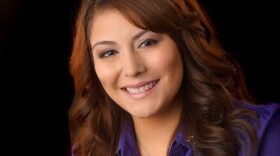Young immigrants were filled with joy and hope when President Obama signed the executive order called Deferred Action for Childhood Arrivals (DACA) almost five years ago.
But today, those feelings of excitement have changed to ones of fear and apprehension.
DACA offered “protected status” to undocumented immigrants brought here by their parents before they turned 16.
President Trump called DACA “illegal” during the campaign, but he's changed his tone since taking office. He now says these so-called DREAMers are not targets in his administration’s crackdown on undocumented immigrants.
But many DREAMers are still on edge and fear they will be deported.
Javier is one of those DREAMers. He's a computer science student at the University of Michigan. He joined Stateside today alongside his brother Juan, a U.S. citizen and high school student. Their parents are both undocumented.
Javier said the family moved to Ann Arbor from Zacatecas, Mexico when he was just four years old. And their family has been here ever since.
He remembers his family's reaction when Obama first signed the DACA order.
“I applied for DACA on the very same day I was able to… I remember my father called me, and he was very excited about the possibility of us being able to, not only work legally in the U.S., but also have a driver’s license,” Javier said. “And just kind of be worry-free – not worry-free, but have less of a worry about deportation.”
Juan agrees.
“I was glad that [my brothers] would be able to feel safe, actually, for like once in a while. Feel safe that they wouldn’t be the first to be targeted for deportation," he said.
Javier calls DACA a “little shield.”
“I feel like people take it as so much more than what it is, especially those that don’t understand it think like, ‘Oh, it’s a free pass for this and that.' And it’s really, we’re kind of stuck in the middle," he explained.
He said there’s a misconception out there that DACA is a pathway to citizenship. But that’s not the case.
“It isn’t a residency at all,” he said. “It essentially just provides you with a social security number. It gives you work authorization in the U.S. and relieves you from being a priority of deportation.”
Javier said his parents came to the U.S. and chose to stay “for all of us, to be honest.”
"You can feel the stress. You can feel the – we're scared. I thankfully have this shield of DACA. But my parents, anything could happen."
“They saw a better future for us here, my brother and I,” he said. “And it kills me how they’re labeled as criminals for just wanting to get us ahead. And I see how hard they work and it’s – I’m glad they did it and I understand why they did it. I just, I wouldn’t be a computer science student at U of M had they not taken the risk.”
Since Donald Trump’s election, there’s been a lot of anxiety for Javier and Juan’s family.
“They’re paranoid,” Javier said. “My mom has been very worried. She’s just heard about all the raids in the different workplaces. And even on Facebook sometimes people are posting like, ‘Be careful on this street. There’s ICE sightings.’ And sometimes I show her and she gets very, very scared, you know, like, ‘Wow, they’re very close.'
“We almost feel like they’re caging us, our backs against the wall," he said. "But so far, we haven’t encountered anything. We’ve been – we’ve been lucky. But yeah, you can definitely feel the tension. You can feel the stress. You can feel the – we’re scared. I thankfully have this shield of DACA. But my parents, anything could happen.”
For the full conversation, including why Juan's health concerns keep his parents extra worried about deportation, listen above.
(Subscribe to the Stateside podcast on iTunes, Google Play, or with this RSS link)
Support for this State of Opportunity segment comes from the W.K. Kellogg Foundation, a partner with communities where children come first.





